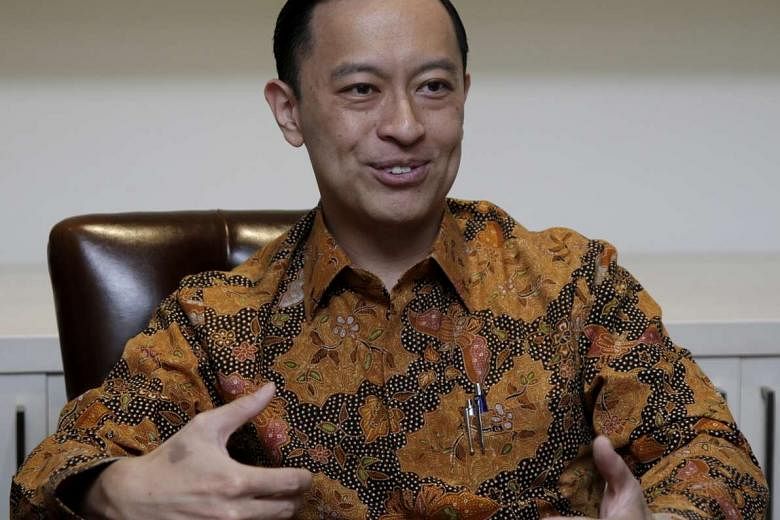He was the man who wrote Indonesian President Joko Widodo's speech at Jakarta's World Economic Forum in April when the latter asked investors to "call me" if they ran into problems.
He was also the man who quietly sought feedback from foreign business circles before Mr Joko signed off on certain policies, and the one the President has by his side during interviews with foreign journalists.
Mr Thomas Trikasih Lembong, a former Singapore-based private equity fund co-founder, has now been thrust into the limelight when Mr Joko appointed him Trade Minister in a Cabinet reshuffle on Aug 12.
He was among key ministers who unveiled a raft of measures last week, aimed at stimulating Indonesia's sluggish economy.
Within weeks into his job, Mr Lembong, 44, has swiftly scrapped a few policies deemed unfriendly to investors. In an interview with The Straits Times last week, he recalled how just days after he was sworn in, two Chevron executives waited for him in the lobby of the Trade Ministry building to get his signature which was required on clearance documents before a ship with crude oil could depart to meet export demands.
"Basically, I had people chasing after me to say, 'Please sir, sign this because the ship needs to leave by Monday'," he said.
He scrapped this requirement, describing it as "one less heart-attack-inducing paperwork" and an example of a one-size-fits-all regulation that could do more harm than good.
He said a few "concrete measures" like this will be announced every month to show Indonesia is serious about cutting red tape and wants to beat down perceptions of being protectionist.
"Everyone is fed-up enough at this point with all the paperwork and economic inefficiencies, that I see the biggest momentum (now) to push through the streamlining of policies and lowering of trade barriers as part of a move towards deregulation," he said, offering a glimpse into how the current Jokowi administration thinks.
The Harvard-educated former investment banker had worked in the equity division at Morgan Stanley in Singapore in 1995 to 1996, before joining Deutsche Bank and Indonesian Bank. He later co-founded a private equity firm based in Singapore.
But even as he goes about trying to untangle cumbersome regulations now, the father of two children, who go to school in Singapore, has his work cut out for him.
He took over the helm of the Trade Ministry at a time when it was being blamed for rising prices of staples which led to inflation.
An outcry over policies such as beef imports saw tense relations with importers such as Australia, and surging beef prices eventually led to Indonesia increasing cattle imports.
His immediate predecessor, Mr Rachmat Gobel, was slammed for an abrupt ban on the sale of alcohol at minimarts that slashed revenues of alcohol firms by nearly half.
One of Mr Lembong's immediate tasks is to revive his ministry's flagging morale after a senior director-general was among three in the ministry to be named suspects in a graft case linked to port-clearance permits. Some 150 policemen marched into the Trade Ministry's offices in July in a widely publicised raid.
This was soon after the President spot-checked Jakarta's Tanjung Priok port in June and became upset with the slow times at the country's busiest port.
He reprimanded officials for misreporting to him clearance time and demanded investigations.
But Mr Lembong prefers to see the recent setbacks as his chance as the new leader to set the tone to reform his ministry.
Analysts cheer his appointment not only with hope that an outward-looking minister could implement better policies, but also that he would be able to articulate the policies more clearly and ease confusion.
To soothe the current nervous market, Mr Lembong said cool heads on the part of ministers and policymakers must prevail. "It is important for fundamentals, for policy coherence. You don't want to be seen as though you are flailing around like headless chickens."

